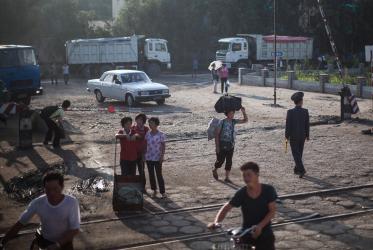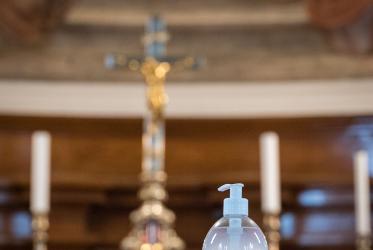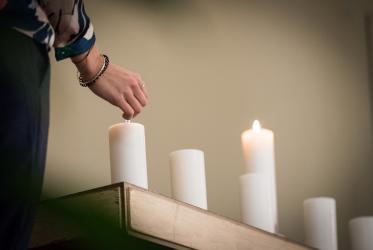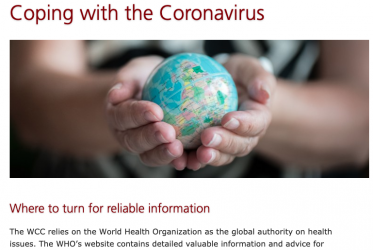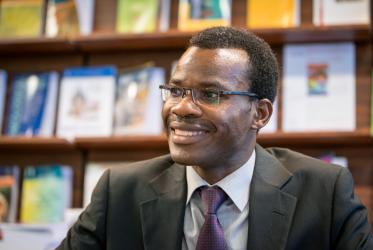Displaying 1 - 20 of 41
WCC mourns passing of Hendrew Lusey-Gekawaku
23 October 2020
The essential role of crisis communication
19 March 2020
WCC webpage available on ‘Coping with the Coronavirus’
18 March 2020
WCC staff appointed to WHO Civil Society Working Group on NCDs
28 November 2019
The cry of the Papuans in Indonesia
14 November 2019
Dealing with traumas and healing of wounds
04 June 2019
A faith-based, holistic approach to HIV and AIDS-care
13 March 2019
Faith and HIV treatment go hand in hand
06 March 2019
Turning mercy and compassion into action
04 March 2019
On the journey to HIV – bridging gaps, debunking myths
21 February 2019
Media invite: Global collaboration on migrants, refugees and HIV
19 February 2019
What difference does dressing in black make?
02 August 2018

